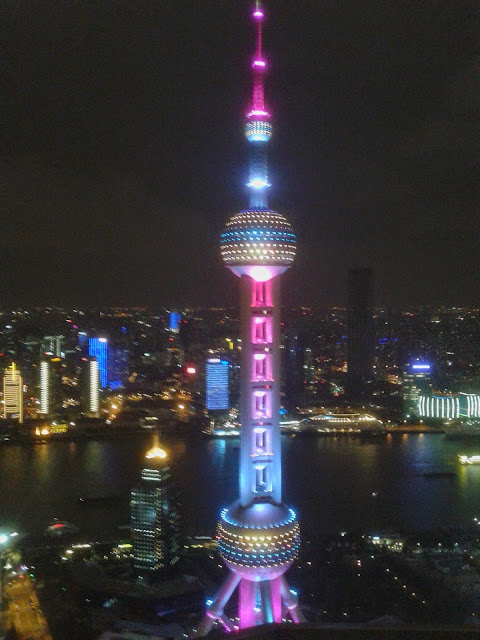From the Jakarta Post

Nelson Mandela's lessons for faltering contemporary leaders
(Amol Titus, Contributor, Jakarta)
The bard, William Shakespeare, with characteristically great insight wrote about leadership in Julius Caesar:
There is a tide in the affairs of men
Which, taken at the flood, leads on to fortune
Omitted, all the voyage of their life
Is bound in shallows and in miseries.
Fortune refers not to personal grandeur, but to general societal well being. And life is to be seen not in the narrow context of the self and immediate family, but in relation to the populace whose existence is impacted by choices made by leaders.
These choices at the turn of this century were being made against the backdrop of not only tides, but literally tsunamis of complexities and challenges.
With a severe buffeting of violence and dogma, consumerism and waste, globalization and divides, disasters and pandemics, corruption and moral dilemmas, immigration and cultural clashes, mega cities and magnified chaos.
A combination of these vicissitudes, perhaps on an unprecedented scale, requires contemporary leaders with qualities that can help unify, inspire and facilitate the search for solutions with wisdom and humanity.
Yet if visual artists and headline writers are to be believed, today's leaders resemble a rather sorry and average lot.
They are depicted with fingers stuck in their ears and Pinocchio-like noses highlighting an absence of truth.
They are shrunken forms in oversized clothes emphasizing mediocre stature and they have bandages over eyes that allude to blinkered perspectives.
Words such as childish, bitter, ruthless, stubborn or lightweight are often used in headlines across the world's media.
Such personalities can only end up exacerbating problems.
And yet we only have to glance at the second half of the 20th century to find in the life of Nelson Mandela, whose 89th birthday is being celebrated today, lessons that can help current leaders cope with and hopefully help overcome modern traumas.
Four prominent lessons exemplified by his lifelong struggle include a strong spirit of sacrifice, an unwavering adherence to principle, courage in the face of extreme and prolonged adversity and a deep sense of humanity.
"I had no epiphany, no singular revelation, no moment of truth, but a steady accumulation of a thousand slights, a thousand indignities and a thousand unremembered moments produced in me an anger, a rebelliousness, a desire to fight the system that imprisoned my people", writes Mandela in his moving autobiography Long Walk to Freedom.
And the system against which he rebelled was one in which an African was forced to lead a life "circumscribed by racist laws and regulations that cripple his growth, dim his potential and stunt his life."
A system called apartheid which Mandela became totally opposed to and which he refused to accept in conscience or principle.
Principles are invariably tested in the crucible of sacrifice.
In hindsight it's quite abhorrent the world allowed apartheid to exist right up to 1990 under an apathy that exacted from Mandela long periods of confinement including a 27-year stretch he spent until his release.
During this period he sacrificed his freedom, family, career, health and the simple pleasures of life. As he admitted: "To be the father of a nation is a great honor, but to be the father of a family is a greater joy. But it was a joy I had far too little of."
In 1968 upon his mother's death he reflected: "Her difficulties, her poverty, made me question again whether I had taken the right path. That was always the conundrum: Had I made the right choice in putting the people's welfare before that of my own family?"
In 1969 his eldest son, Thembi, was killed in an accident but Mandela was refused permission to attend the funeral. It was a conundrum he grappled with day after day in a cramped cell six feet wide and the permission to write only one letter every six months.
"Prison and the authorities conspire to rob each man of his dignity. In and of itself, that assured that I would survive, for any man or institution that tries to rob me of my dignity will lose because I will not part with it at any price or under any pressure ... .
"There were many dark moments when my faith in humanity was sorely tested, but I would not and could not give myself up to despair.
"That way lay defeat and death."
Mandela's courage never slackened despite increasing hardships -- instead it kindled the faith of his followers and ultimately wore down his oppressors.
His courage was accompanied by a deep sense of humanity which is evident from his charming ability to reach out, harmonize and seek negotiated settlements (it's noteworthy he strongly opposed the Iraq war from the outset).
His humanity was evident during the bloody Inkatha clashes, during the initial difficult period of reconciliation and institutionalization of a genuine democracy that South Africa is today justifiably proud of.
His condolences on the death of PW Botha, former Prime Minister and one of apartheid's tough implementers, highlighted his magnanimity and lack of bitterness.
He said, " ... while to many Mr Botha will remain a symbol of apartheid, we also remember him for the steps he took to pave the way towards the eventual peacefully negotiated settlement in our country".
It is with such gestures and vision that clashes of civilizations are avoided and co-existence fostered.
Leaders faltering in a climate of anger, distrust and self-centeredness would do well to reflect on the extraordinary lessons to be learned and the life of Mandela.



Comments